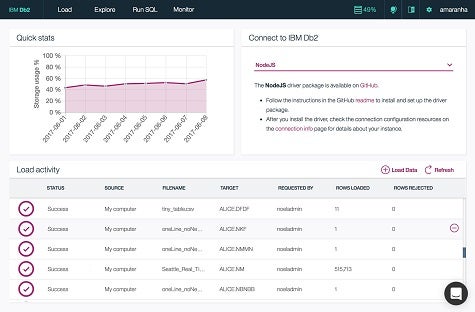Aiming to put the focus of IT organizations and the industry as a whole squarely on data management, IBM today announced a series of data governance initiatives that includes the formation of an Open Data Governance Consortium in collaboration with Hortonworks dedicated to advancing an Atlas open source data governance framework for Hadoop. In all, IBM says 14 organizations have pledged support for an effort that is initially focused on making Atlas a top-level Apache project.
At the same time, IBM unveiled a IBM Unified Data Governance Platform that provides capabilities such as cognitive metadata harvest, lineage tracking, policy enforcement, data integration services and persona-based reporting tools.
Finally, IBM also announced today that it is adding JSON support to Db2 in addition to providing a fully managed Db2 service hosted on the IBM Cloud. IBM also extended the in-memory computing capabilities of a BLU Acceleration platform for Db2 as part of an effort the make it simpler to meld transaction processing and analytics within the same application.
Rob Thomas, general manager for IBM Analytics, says collectively, these initiatives are intended to elevate data science.
“As a company, we want to lead with data science,” says Thomas.
As part of that effort, Thomas says, IBM is also making a concerted effort to make machine learning algorithms available on-premises as well as in cloud platforms such as Watson. Previously, IBM announced an effort to make machine learning algorithms available on IBM mainframe platforms. Now, Thomas says, IBM is extending that effort to multiple platforms.
Like a lot of IT vendors, IBM expects new requirements such as the General Data Protection Rule (GDPR) being implemented by the European Union to require companies to implement more mature approaches to consistently managing data. As an outgrowth of that effort, IBM hopes that follow-on investments in data science projects will expand.
IBM and much of the IT industry have been making the case for data being the new oil for several years now. The trouble with that metaphor is that while the value of oil tends to fluctuate, it’s not especially useful until it gets refined. That same issue also applies to data.



